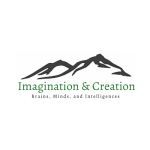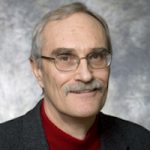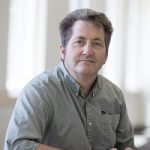The Annual Symposium, usually held during the winter semester, is one of the college-wide events sponsored each year by the Humanities Center. Its featured speaker is an invited guest whose expertise includes the subject of that year’s annual theme; other speakers at the Symposium are usually BYU faculty, from the College of Humanities and elsewhere around campus.
2023 – 2024
Imagination and Creation: Brains, Minds, and Intelligences
October 13 – 14, 2023
 This year the Humanities Center will partner with the Faith and Imagination Institute to host its Annual Symposium. It will feature four distinguished guests including one of our own faculty. The first of two days will be on Friday, October 13th on BYU campus, and the second on Saturday October 14th in Southern Utah. More information, including registration, can be found on the symposium’s website at: https://humanitiescentersymposium.byu.edu/
This year the Humanities Center will partner with the Faith and Imagination Institute to host its Annual Symposium. It will feature four distinguished guests including one of our own faculty. The first of two days will be on Friday, October 13th on BYU campus, and the second on Saturday October 14th in Southern Utah. More information, including registration, can be found on the symposium’s website at: https://humanitiescentersymposium.byu.edu/
Imagination and creativity are the lifeblood of the humanities. We celebrate inventive, original creation. We aim to cultivate imaginative, reflective perception. Yet the ultimate source of imagination and creation remains mysterious and elusive. Genius, as the term itself implies, was long attributable to the external inspiration of a shadowy genii or muse. Those flashes of insight that lead to an original, creative articulation earn our appreciation because they seem so un-willable; simply by taking thought or mastering techniques can’t summon the original powers of imagination on demand and create a thing so genuine as those we admire. Closer to home than geniis and muses, our own minds—perhaps the wiring particular to our brains—have also been viewed as the seat of imagination and creativity. Our fall symposium, co-sponsored by the BYU Humanities Center and the Faith and Imagination Institute, investigates the activity of imagination and creativity in spirit and matter, the mind and the brain. We welcome to BYU scholars whose work treats these questions across the disciplines of education, literary studies, cognitive studies, neuroscience, psychology, and philosophy. Beyond intellectual understanding, the symposium considers how critical attention to these questions may unlock and expand the imaginative, creative capacities of ourselves and our students.
2021 – 2022
On Belief
September 24 – 25, 2021 (B192 JFSB, the Education in Zion Theater & Sundance Resort)

The Humanities Center’s Annual Symposium follows last year’s format and features nine distinguished guests including one of our own faculty. The first of two days being held on Friday, September 13th on BYU campus in the JFSB, and the second on Saturday September 14th at Sundance Resort. All sessions will be plenary. More information, including registration, can be found on the symposium’s website at: https://humanitiescentersymposium.byu.edu/
Belief is a curious phenomenon in our postmodern, posthuman age. If anything, per Jean-François Lyotard, our present era is best characterized by its loss of belief, especially in grand narratives. Religion, a principal site of grand narrative and a bastion of belief, has seen its influence gradually wane in recent decades. And while the deterioration of strong faith traditions gives way to a virtually endless array of totemic icons, the cultural objects in play seem to devolve less on deep psychic investments than on something like user friendliness and circulation.

It thus seems fair to ask whether belief has truly waned in our postmodern era, or whether it has simply evolved, or whether all such apparent differences are illusory. More fundamentally, it raises the question of what belief is, and of what it means, today. What forms does it take and inspire? What are its objects and sources? Its benefices and dangers? Our symposium, jointly sponsored by the BYU Humanities Center and Belief: An Interdisciplinary Journal of the Humanities, will serve as the occasion for rigorous discussion of these and related questions.
2019 – 2020
On Being Vulnerable, Part II: Faith after the Anthropocene
September 13 – 14, 2019 (B192 JFSB, the Education in Zion Theater & Sundance Resort)
 The Humanities Center’s Annual Symposium follows last year’s format and features nine distinguished guests including one of our own faculty. The first of two days being held on Friday, September 13th on BYU campus in the JFSB, and the second on Saturday September 14th at Sundance Resort. All sessions will be plenary. More information can be found on the symposium’s website at: vulnberabilitysymposium.byu.edu
The Humanities Center’s Annual Symposium follows last year’s format and features nine distinguished guests including one of our own faculty. The first of two days being held on Friday, September 13th on BYU campus in the JFSB, and the second on Saturday September 14th at Sundance Resort. All sessions will be plenary. More information can be found on the symposium’s website at: vulnberabilitysymposium.byu.edu
The Anthropocene signifies a new, mutually vulnerable relationship between Earth and humanity. We depend on it, but it also depends on us. Is it possible to imagine ourselves transformed for the better in the face of ecological peril? How might our vulnerability inspire us to reconceive our place in the cosmos, alongside each other and, potentially, before God? “Faith after the Anthropocene” refers to ways our current condition of generative catastrophe modifies our beliefs and practices, whether religious or secular.

While retaining the insights from Hannah Arendt that helped direct our thinking during last year’s symposium – that is, while continuing to give special thought to the role the humanities play in helping us recognize and respond to the prospects of our own vulnerability – we might take our lead this year from Bruno Latour. In a recent essay, Latour proposes three territorial constructs – Globe, Land, and Earth. He deems Globe and Land illegitimate inasmuch as they correspond with typical Left/Right distinctions (globalization versus nationalism, science versus tradition, progressive versus conservative, utopia versus Heimat, etc.). His point is that modernity cannot remain on its current course – there is no “Globe,” there is no “Land” – so we must learn to think differently. Faith, whether taken affectively or institutionally, will play a crucial role in formulating a theory and habitus of Earth; and Earth, in turn, will impact whatever we mean by faith. Thinking those two together is the object of this symposium.
2018 – 2019
On Being Vulnerable: “Crisis” & Transformation
September 20 – 21, 2018 (B192 JFSB, the Education in Zion Theater & Sundance Resort)
 The Humanities Center’s Annual Symposium will take a new format this year and will feature nine distinguished guests from around the world and three of our own faculty. The first of two days being held on Friday, September 21st on BYU campus in the JFSB, and the second on Saturday September 22nd at Sundance Resort. All sessions will be plenary. More information, including registration, can be found on the symposium’s website at: vulnberabilitysymposium.byu.edu
The Humanities Center’s Annual Symposium will take a new format this year and will feature nine distinguished guests from around the world and three of our own faculty. The first of two days being held on Friday, September 21st on BYU campus in the JFSB, and the second on Saturday September 22nd at Sundance Resort. All sessions will be plenary. More information, including registration, can be found on the symposium’s website at: vulnberabilitysymposium.byu.edu
How do humanities disciplines register feelings and meanings associated with vulnerability? One common response to vulnerability, whether for individuals or institutions, inclines toward protectiveness and self-defense, and understandably so. But vulnerability also opens us to transformation. What might the prospects of dynamic change mean in an era of widespread “crisis” in the humanities, when humanities disciplines are increasingly portrayed as indefensible? Might the greatest chance for the survival of the humanities depend, ironically, on how their proponents embrace that very trait?
2017 – 2018
Therapeutic Criticism
October 6, 2017, 3:00 – 4:30 PM, JFSB B192 (the Education in Zion Theater)
 Amanda Anderson, Andrew W. Mellon Professor of the Humanities and English at Brown University, and director of Brown’s Cogut Center for the Humanities. She is a literary scholar and theorist who has written on nineteenth-century literature and culture, as well as on contemporary debates in the humanities. Her lecture is titled “Therapeutic Criticism.” Ideological criticism examines the relationship between individuals and the social forces that shape them. In the past few decades, two important but conflicting responses have formed to such criticism. This lecture will address the relation between these schools of thought, situating them within the history of criticism and paying particular attention to the psychologically divergent ideologies that they embody.
Amanda Anderson, Andrew W. Mellon Professor of the Humanities and English at Brown University, and director of Brown’s Cogut Center for the Humanities. She is a literary scholar and theorist who has written on nineteenth-century literature and culture, as well as on contemporary debates in the humanities. Her lecture is titled “Therapeutic Criticism.” Ideological criticism examines the relationship between individuals and the social forces that shape them. In the past few decades, two important but conflicting responses have formed to such criticism. This lecture will address the relation between these schools of thought, situating them within the history of criticism and paying particular attention to the psychologically divergent ideologies that they embody.
2016 – 2017
Getting It: Art and Attunement
February 3, 2017, 3:00 – 4:30 PM, JFSB B192 (the Education in Zion Theater)
 Rita Felski is a William R. Kenan Jr., Professor of English at the University of Virgina, and editor of New Literary History. Her newest project focuses on forms of aesthetic attatchment: how and why we get stuck to works of art. Considering how the language of attunement can capture certain aspectsof aesthetic experience, Felski addresses if it is possible to talk about the agency and the presence of art works–yet without neglecting the many social factors involved?
Rita Felski is a William R. Kenan Jr., Professor of English at the University of Virgina, and editor of New Literary History. Her newest project focuses on forms of aesthetic attatchment: how and why we get stuck to works of art. Considering how the language of attunement can capture certain aspectsof aesthetic experience, Felski addresses if it is possible to talk about the agency and the presence of art works–yet without neglecting the many social factors involved?
Read a write-up of the lecture here.
2015 – 2016
Work of Art
November 13, 2015, 3:00 – 4:30 PM, JFSB B192 (the Education in Zion Theater)
C aroline Levine, Professor of English and the Chair of the English Department at the University of Wisconsin–Madison, met with faculty to discuss her recent book Forms: Whole, Rhythm, Hierarchy, and Network, which outlines a provocative argument about the transference of structures and patterns in literature and novels to social structures. In addition to discussing her book, Professor Levine met with the women’s studies group and she sat down with Matthew Wickman, the Director of the BYU Humanities Center, for an interview for the BYU radio show Thinking Aloud on Classical 89. She is a very prolific and generous writer and thinker, and she challenged the audience with new ways of thinking about this year’s Humanities Center theme: The Work of Art.
aroline Levine, Professor of English and the Chair of the English Department at the University of Wisconsin–Madison, met with faculty to discuss her recent book Forms: Whole, Rhythm, Hierarchy, and Network, which outlines a provocative argument about the transference of structures and patterns in literature and novels to social structures. In addition to discussing her book, Professor Levine met with the women’s studies group and she sat down with Matthew Wickman, the Director of the BYU Humanities Center, for an interview for the BYU radio show Thinking Aloud on Classical 89. She is a very prolific and generous writer and thinker, and she challenged the audience with new ways of thinking about this year’s Humanities Center theme: The Work of Art.
2014 – 2015
 On Friday, February 20th, Eric Hayot will be on campus as the guest at our Humanities Center Annual Symposium. Hayot is Distinguished Professor of Comparative Literature at Penn State, and while much of his work is in Chinese he is also a major commentator on the humanities, with a great deal of wide-reaching (and very engaging) scholarship. There are two meetings associated with Hayot’s visit: an afternoon lecture (3pm in Education in Zion Theater) and a morning meeting with faculty (11am in 4010). That morning meeting will center around Hayot’s 2012 book On Literary Worlds, an examination of world literature from the perspective of a critique of modernism (and its vocabulary of novelty, progress, invention, etc.).
On Friday, February 20th, Eric Hayot will be on campus as the guest at our Humanities Center Annual Symposium. Hayot is Distinguished Professor of Comparative Literature at Penn State, and while much of his work is in Chinese he is also a major commentator on the humanities, with a great deal of wide-reaching (and very engaging) scholarship. There are two meetings associated with Hayot’s visit: an afternoon lecture (3pm in Education in Zion Theater) and a morning meeting with faculty (11am in 4010). That morning meeting will center around Hayot’s 2012 book On Literary Worlds, an examination of world literature from the perspective of a critique of modernism (and its vocabulary of novelty, progress, invention, etc.).
2013 – 2014
Innovation and the Humanities
March 21, 2:30-5:00 PM, JFSB B192 (the Education in Zion Theater)
 Christopher Newfield, Professor of English, University of California, Santa Barbara English Department: “What Are the Humanities For? Cultural Study and Human Development in the 21st-Century University”
Christopher Newfield, Professor of English, University of California, Santa Barbara English Department: “What Are the Humanities For? Cultural Study and Human Development in the 21st-Century University”
 Robert V. Bullough, Professor of Education, BYU McKay School of Education: “Higher Education and the Neoliberal Threat: Fast Time, Place, and Identity”
Robert V. Bullough, Professor of Education, BYU McKay School of Education: “Higher Education and the Neoliberal Threat: Fast Time, Place, and Identity”
2012 – 2013
States of the Humanities: New Keywords On the Digital and Environmental Humanities
Friday, March 22, 2:00-5:00, JFSB B192
 Ursula K. Heise, UCLA English Department and Institute of the Environment and Sustainability: “The Animal in the Database: Biodiversity and the Epic Imagination”
Ursula K. Heise, UCLA English Department and Institute of the Environment and Sustainability: “The Animal in the Database: Biodiversity and the Epic Imagination”

Mark Davies, BYU Department of Linguistics and English Language
 Steven Peck, BYU Department of Biology: “Conjuring the Natural World out of Digital Fictions: The Role of Narrative in Complex Ecological Computer Simulation”
Steven Peck, BYU Department of Biology: “Conjuring the Natural World out of Digital Fictions: The Role of Narrative in Complex Ecological Computer Simulation”